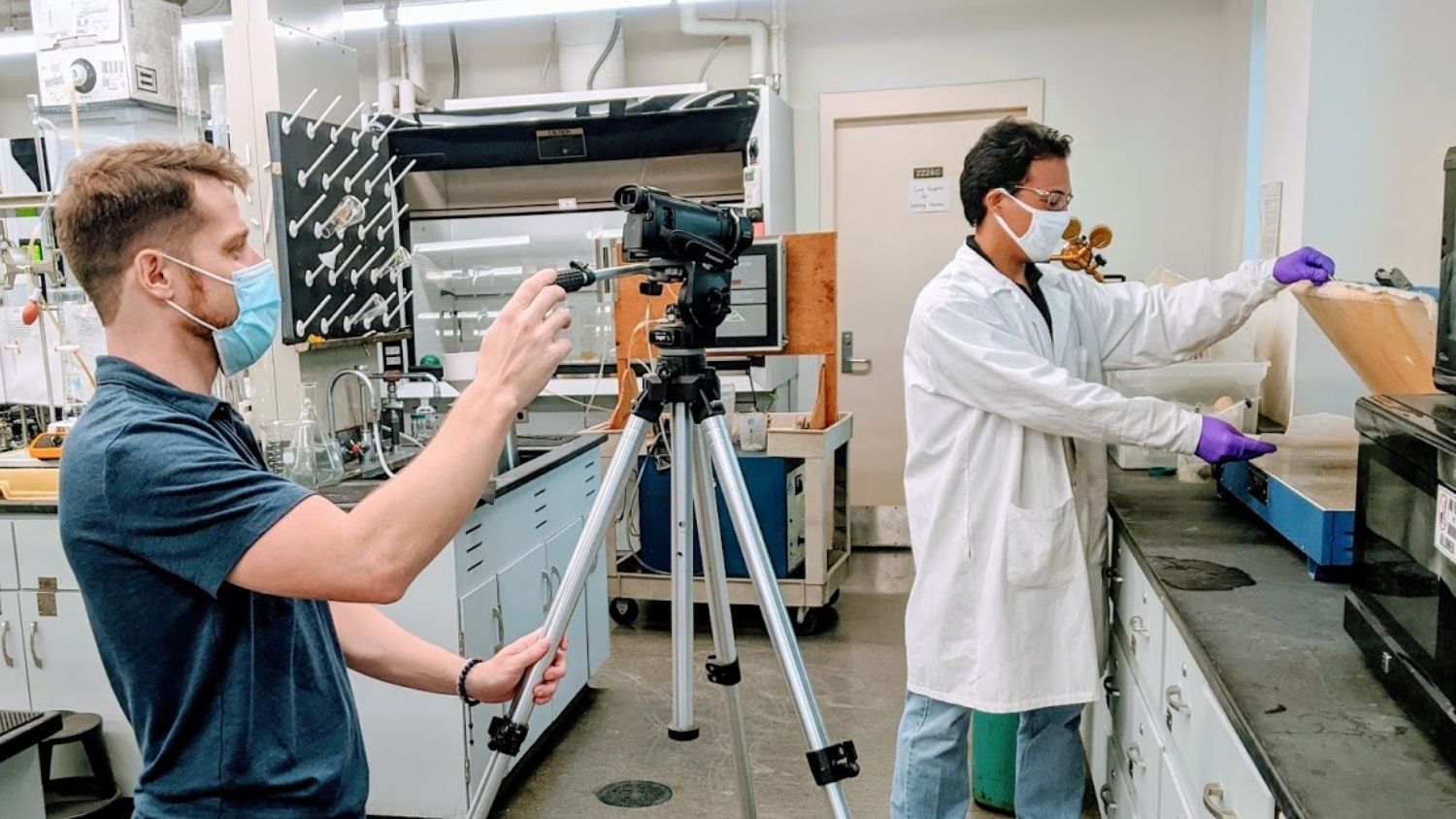The Sustainable Bioproducts and Bioenergy Program (SBBP) Adapts to COVID-19

By Guest Blogger: Adam Scouse
COVID-19 has dramatically impacted us all.
Social distancing precautions and the elimination of many in-person activities has made everyday life challenging. But our North Carolina educators have been confronted with the incredible task of educating our future leaders and scientists while simultaneously prioritizing student, family, and community safety. The question remains, how do you create meaningful learning experiences from home?
When Sustainable Bioproducts and Bioenergy Program (SBBP) staff at North Carolina State University (NCSU) asked participating high-school teachers what their needs were during the pandemic, teachers answered by requesting online educational content that they could integrate into their lesson plans. NC State graduate students stepped up to the plate and went to work developing a series of laboratory activities that high-school students could watch from home. These labs were filmed and produced on campus while SBBP members created teacher and student lab guides and supplemental resources with the goal of making each lab activity a truly meaningful experience for students. This quick display of flexibility and commitment shows how committed the SBBP is to its participants and accomplishing the program’s goal of advancing student knowledge of the bioeconomy and developing their skills for future success in the workplace. This new approach helps teachers continue to offer real-world science to their students while hands-on learning becomes increasingly more challenging in the face of COVID-19.
The Sustainable Bioproducts and Bioenergy Program (SBBP) at NCSU is committed to spreading awareness of sustainable concepts and providing critical knowledge to bright young minds with the goal of inspiring career paths in bioproducts and bioenergy. With a petroleum-based economy dominating many facets of our society from automobile fuel, petrol-chemicals, petrol-pharmaceuticals, energy sources, and ever prevalent plastics, the transition to renewable resources has been an uphill battle. The success of the bioeconomy will rely on the upcoming generation choosing to make sustainable decisions, and the SBBP hopes to provide these minds with the necessary tools to do so.
The SBBP is a collaboration between NCSU’s College of Natural Resources led by Dr. Richard Venditti and the College of Education led by Dr. Margaret Blanchard. Currently, the program is focused on educational outreach in high schools, particularly those in rural communities. The SBBP team works with science teachers in these communities to provide distance courses, lesson plans, hands-on workshops, and resources to promote sustainable practices using plant-based and renewable resources. With USDA funding and the hard work of the SBBP team, high school students have additional access to knowledge and experiences needed to further advance America’s bioeconomy. The hope is that these students will go on to make meaningful discoveries in the bioproducts and bioenergy fields. At the very least, spreading awareness is crucial in building support for a sustainable future.
Participant Spotlight: Erica Young
As a former undergraduate participant in the SBBP, I have enjoyed contributing what I can in developing these online laboratory activities. The knowledge, experience, and connections I gained through the SBBP program helped shape and solidify my plans for a career in the bioeconomy. While originally starting my education as a community college student, I am now a double major at NCSU in their Paper Science and Engineering and Chemical Engineering program. As a SBBP member, I had the opportunity to work as an intern at a pilot algae biofuels research operation in California. This gave me a serious competitive edge when applying for internships within the paper industry. I will forever be grateful for the profound and meaningful impact the SBBP had on developing my passions and contributing to my overall success (and for helping me find my career path). I am thrilled to contribute what I can in order to secure the future success of such a wonderful program.
- Categories:
